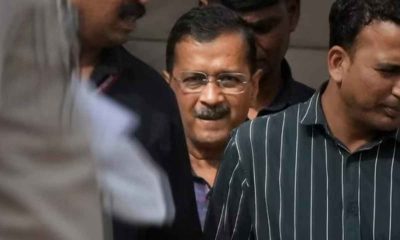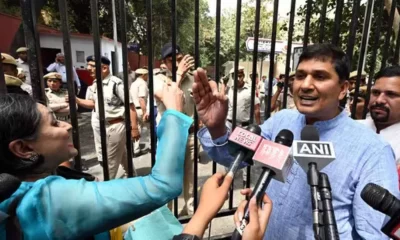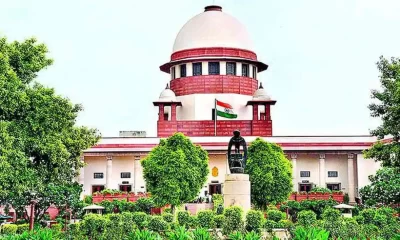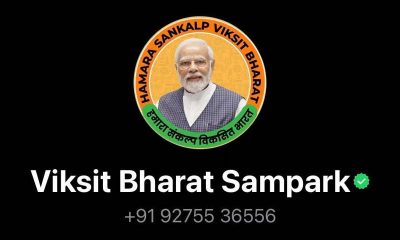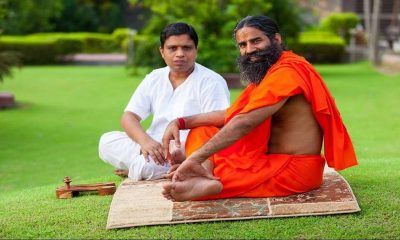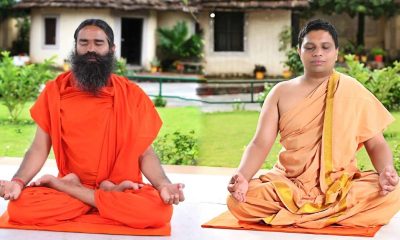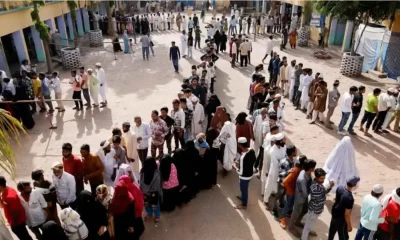India News
Modi Govt to tighten laws as WhatsApp rejects demand for software to trace message origin
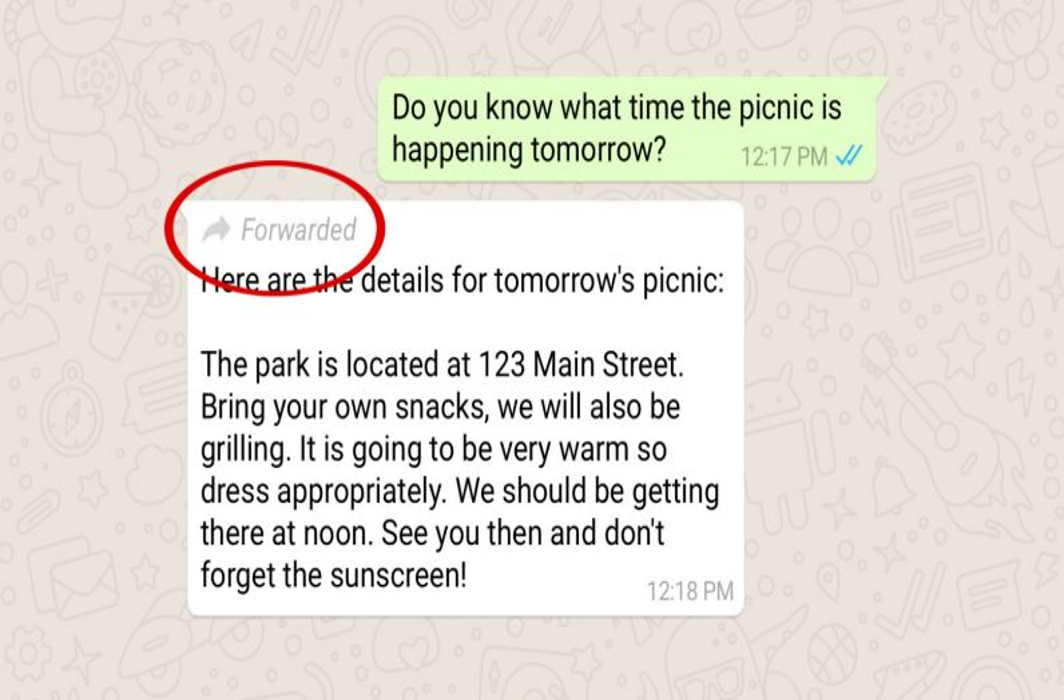
Whatsapp has rejected Modi government’s demand for making software to trace origin of a message on its platform, said media reports.
The response has prompted the government to consider issuing new, stringent guidelines by September to amplify the accountability of internet and social media companies under Indian law and to ensure they react quickly to stop the spread of rumours or offensive content on their platforms, according to a report in The Economic Times, quoting an official.
A WhatsApp spokesperson said, “Building traceability would undermine end-to-end encryption and the private nature of WhatsApp, creating the potential for serious misuse. WhatsApp will not weaken the privacy protections we provide.”
People rely on WhatsApp for all kinds of “sensitive conversations”, including with their doctors, banks and families. “Our focus remains on working closer with others in India to educate people about misinformation and help keep people safe,” the spokesperson added.
WhatsApp Head Chris Daniels had met IT Minister Ravi Shankar Prasad earlier this week. After the meeting, Prasad told reporters that the government has asked WhatsApp to set up a local corporate entity and find a technology solution to trace the origin of fake messages circulated through its platform as well as appoint a grievance officer. He acknowledged the role played by the Facebook-owned company in India’s digital story, but was stern that WhatsApp could face abetment charges if it did not take action to tackle the issue of fake news being circulated on its platform.
Daniels had declined to comment on the proceedings after the meeting. Briefing reporters on his talks with WhatsApp’s Daniels, minister Prasad said the company (WhatsApp) has agreed to set up a corporate entity in India, appoint a grievance officer in the country as well as follow the local laws of the land.
The Indian government has served two notices to WhatsApp seeking details of actions it has taken to curb the menace. In its response, WhatsApp had informed that it is building a local team, including having an India head, and has introduced new features to let its users identify forwarded messages.
WhatsApp has also restricted the number of forwards that can be done at a time. Besides, the company is also running advocacy and education programme to help people spot fake news. Last month, WhatsApp top executives, including COO Matthew Idema, met IT Secretary and other Indian government officials to outline various steps being taken by the company on the issue.
Now, with WhatsApp refusing to build software to trace origin of messages, the government is contemplating notification of fresh clauses under existing intermediary guidelines under Section 79 of the Information Technology Act, said ET quoting an official.
“The draft of the guidelines is ready and a legal firm is vetting it. It should be out by September,” the person said.
The proposed guidelines will mandate global internet and social media firms to name a grievance officer in the country tasked with responding to complaints within a few hours, as well as ensure there is traceability of content.
The intermediary guidelines under Section 79 of the IT Act, which was notified in 2011, mandates companies to follow “due diligence” and allowed time up to 36 hours for companies to remove objectionable content and name a grievance officer on its website for response.
However, these guidelines were not stringently enforced. Currently, internet firms such as Google and Facebook, which also owns WhatsApp, are categorised as intermediaries which act as facilitators and do not actively take part in creating or modifying information.
“The ball is now in our court, we have to come out with guidelines under Section 79 of the IT Act and then we can take it to WhatsApp (or any other internet company) and say you are not complying with them,” the government officer told ET. “These will provide us with tools to enforce (things), right now they say that they are endto-end encrypted so can’t trace the origin of messages,” the official said.
The move by the government to mandate the traceability of messages circulated will open up a “can of worms” since the law will also be binding on text messages on cellular networks, said the ET report quoting legal experts.
“The government can’t expect officials of companies to take decisions on content within a few hours, something the courts will take many years to decide,” said Rahul Matthan, partner at law firm Trilegal. “There are some sites such as Facebook which curate the news feed and play some control, and we can put responsibility on them, but all messages don’t need to be reviewed to solve this,” ET quoted him as saying.
The report said privacy experts are of the view that the proposed guidelines, if enforced, could potentially violate the Supreme Court’s past verdict during the 2015 Shreya Singhal judgement.
“The Section 79 rules were subject to review and reading down by the Supreme Court of India in its landmark Shreya Singhal judgment. Any change to them would impact constitutional rights, and requires great care and open discussion,” said Raman Jit Singh Chima, global policy director at Access Now, a digital advocacy group. “It’s unfortunate that the government body tasked to manage this — the Cyber Regulation Advisory Committee –appears to not be meeting or engaging with stakeholders publicly.”
Trilegal’s Matthan said the Supreme Court has asked the government to come up with a law against lynching and not against the messenger. “The legislature can’t amend the concepts which have been laid down by the apex court during the Singhal judgement,” he added.
2024 Lok Sabha Elections
Lok Sabha Elections: Voter turnout 62.02% in Tamil Nadu till 5pm
The voter turnout in Tamil Nadu stands at 62.02%, while Uttar Pradesh records a turnout of 57.5%. Meanwhile, in West Bengal, voter participation surges to 77.5% as of 5 pm.
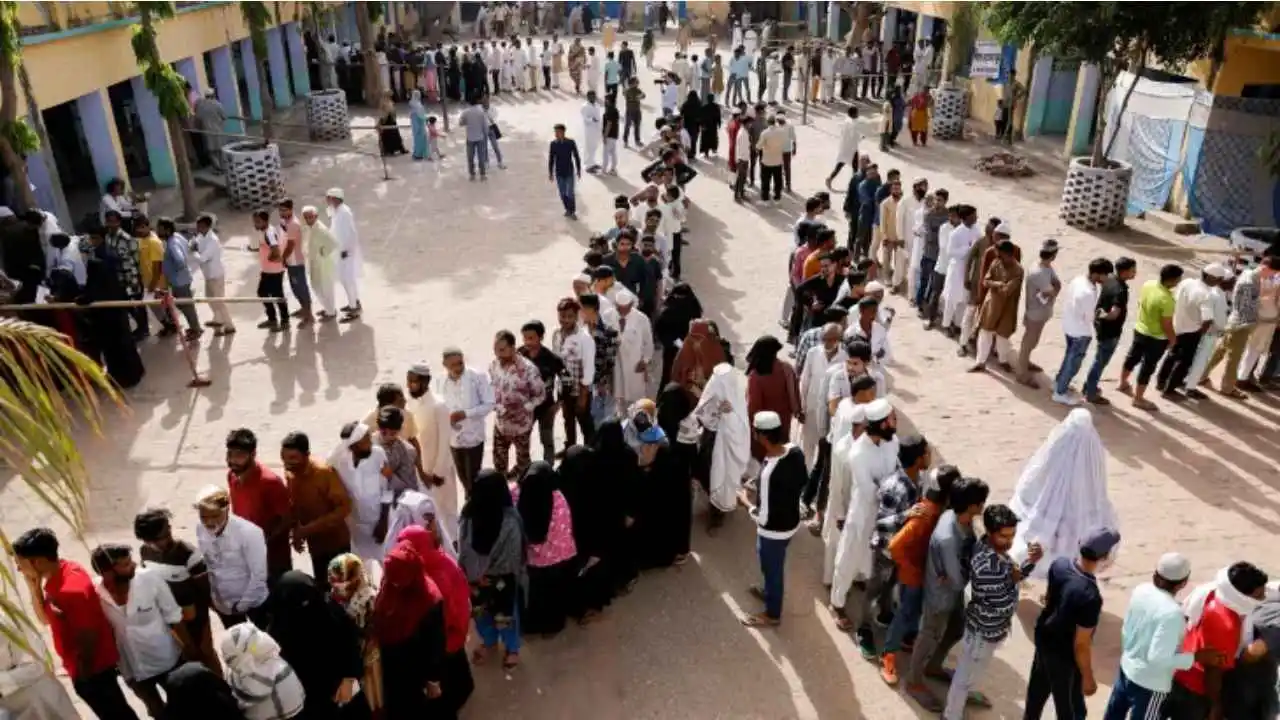
The Lok Sabha elections 2024 began today, marking the onset of the world’s largest electoral event. Voting ended in all 39 Lok Sabha constituencies in Tamil Nadu with a total voter turnout of 62.02%. State BJP chief and Coimbatore Lok Sabha constituency candidate K Annamalai said, they were getting complaints from a large number of voters that their names were missing from the voters’ list.
This incident happened in many places. Annamalai said they are demanding re-poll in places where the names of a large number of voters were missing.He said they had a doubt that there was some political interference because the names of a large number of BJP caders were missing from the voters list.
The voters in South Chennai showed lukewarm interest to participate in the election process and had a total voter turnout of 57.04% till 5pm. Although the overall percentage is poor, some areas like Thiruvanmiyur witnessed brisk polling from 7am onwards. Elderly, middle aged and young voters turned up and it was a family outing for many as they cast their vote.
Corporation volunteers assisted senior citizens with wheelchairs and guided them to their respective polling booths. The hot weather also had an impact on the polling as it reduced the voter turnout as many booths in the corporation school in MGR Nagar were seen deserted around noon. Senior citizens showed courage as they reached the polling booths in private vehicles to exercise their franchise.
Most of the polling booths had shamianas for voters so that they could wait in a queue. Some people even found refuge in the nearby buildings to save themselves from the scorching heat. The polling officials gave instructions to the voters to keep their phones switched off while they exercised their franchise. The security personnel at the polling booth also regulated traffic outside the polling booth in MGR Nagar.
2024 Lok Sabha Elections
Deserted by key supporters, the Kamal Nath story looks set to wind to an end in Chhindwara
Nath’s closest allies in his near 50-year reign—Deepak Saxena and Kamlesh Shah—have deserted him. His local team of corporators has also decided to jump ship leaving a gaping hole in Nath’s campaign trail.
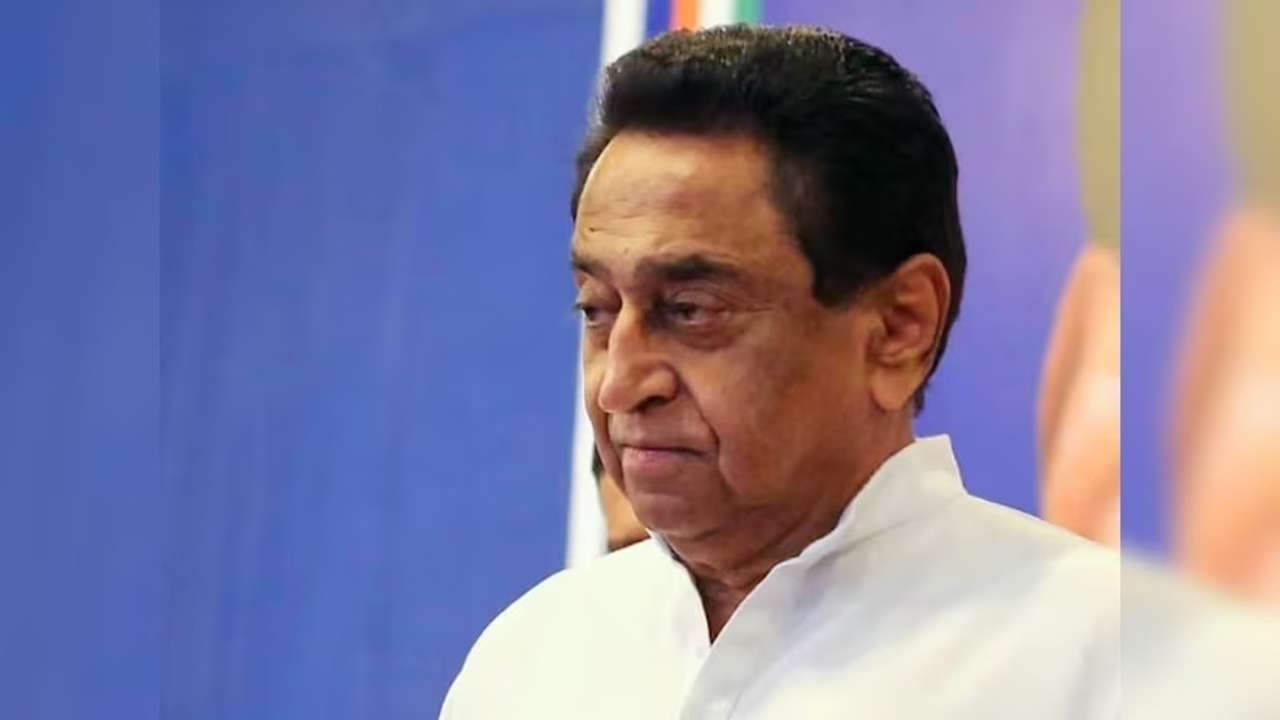
By Neeraj Mishra
The Congress has lost Chhindwara only once since Independence when the wily Sunderlal Patwa was sent there by Atal Bihari Vajpayee to test Kamal Nath’s hold on the constituency. Patwa won the 1997 by-election by a slim margin in the backdrop of Nath having forced his wife to first contest and later vacate the seat for him. Nath, however, returned to his winning ways the very next year and has won the seat nine times.
It seems possible that Chhindwara, the lone surviving Congress seat, will be lost again this time and may be forever. A day ahead of polling, the town was drowned in saffron. Not so much the effect of vigorous campaigning by Vivek Sahu of the BJP but the Ram Navami festival which brought out saffron flags on every rooftop. The effect is likely to last since the polling is today. At 77, Nath is unlikely to contest another election here and his son Nakul seems like a pale shadow of his father unable to even make a forceful speech. The days of running Chhindwara from Shikarpur kothi are gone.
Nath’s closest allies in his near 50-year reign—Deepak Saxena and Kamlesh Shah—have deserted him. His local team of corporators has also decided to jump ship leaving a gaping hole in Nath’s campaign trail. Nakul had won by a margin of 37,000 votes in 2019 and the biggest lead had come from Kamlesh’s Amarwada Assembly segment. With Saxena in control of Chhindwara and forced to show his strength in his new party, it is highly likely that Nakul will not be depending on these segments. Instead, the Congress campaign was focused on Pandhurna, Parasia and Chaurai.
Amit Shah was in the region a couple of days ago and warned all BJP workers—old and new—against lethargy. His message was clear, the BJP wants all 29 seats this time. Cabinet Minister Kailash Vijayvargiya is camped here and using all his political acumen for the desired results. One such tactic was to raid the Shikarpur Kothi of Kamal Nath for his assistant Miglani who handles almost everything for him. With Miglani temporarily neutralised, BJP is best placed to repeat its win in Chhindwara in 1997.
2024 Lok Sabha Elections
Lok Sabha Elections 2024: Nearly 40% voter turnout till 1pm
Chennai recorded an average voter turnout of 34% as of 1 pm on Friday. According data released by the Election Commission of India, Chennai (North) recorded 35%, Chennai (Central) recorded 32.3% and Chennai (South) recorded 34%.
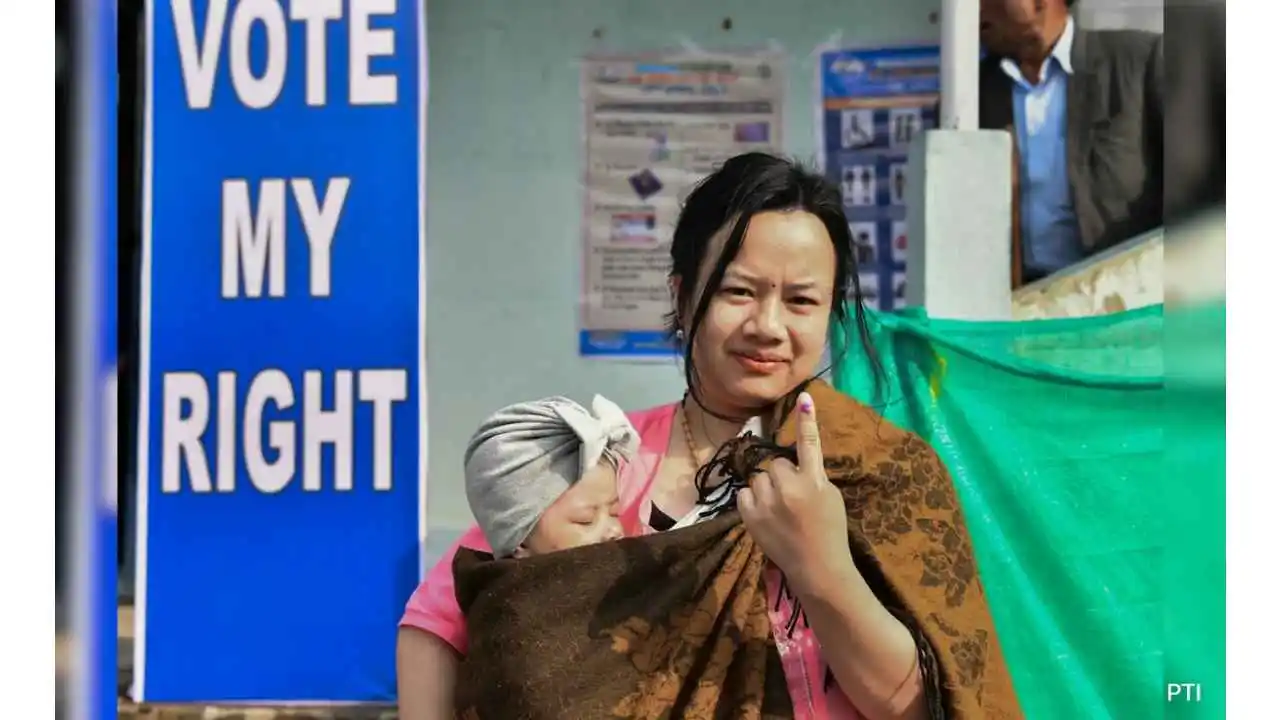
The first phase of voting for the 18th Lok Sabha elections started taking place in 21 states and Union territories on Friday. Nearly 40% voter turnout was recorded till 1pm across the states. Seats in Assam, Arunachal Pradesh, Chhattisgarh, Bihar, Maharashtra, Madhya Pradesh, Manipur, Mizoram, Meghalaya, Rajasthan, Nagaland, Tamil Nadu, Sikkim, Uttar Pradesh, Tripura, West Bengal, Uttarakhand, Jammu and Kashmir, Andaman and Nicobar Islands, Lakshadweep and Puducherry go to elections on Friday.
There has been a substantial increase in the voter turnout charts across the Northeast states, with Tripura leading at 53.04% until 1 pm, as per the data released by the Election Commission of India. Other northeast states like Manipur (46.92%) and Meghalaya (48.91%) are also witnessing high voter turnout. After Tripura, West Bengal is experiencing a high voter turnout of 50.96%.
Chennai recorded an average voter turnout of 34% as of 1 pm on Friday. According data released by the Election Commission of India, Chennai (North) recorded 35%, Chennai (Central) recorded 32.3% and Chennai (South) recorded 34%.
Over 33% voter turnout was recorded in the first 6 hours of voting on Friday in 12 parliamentary constituencies of Rajasthan. According to the Election Commission, voting started at 7 am amid tight security arrangements and 33.73 % voting took place till 1 pm. The highest voter turnout of 40.72 % was recorded in the Ganganagar Lok Sabha seat while Karauli-Dholpur saw the lowest turnout of 28.32 %. Jaipur recorded a poll percentage of 39.35 %.
Over 37 % voter turnout was recorded till 1 pm in the Lok Sabha election being held for five parliamentary constituencies in Uttarakhand on Friday. Elections began at 7 am and the five constituencies recorded an overall poll percentage of 37.33 % up to 1 pm. The Nainital-Udham Singh Nagar seat recorded the highest turnout of 40.46 %, followed by Haridwar with 39.41%, Pauri Garhwal with 36.60 %, Tehri Garhwal with 35.29 % and Almora with 32.29 %.
-
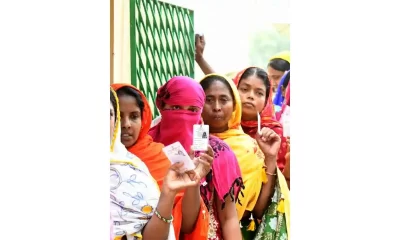
 2024 Lok Sabha Elections23 hours ago
2024 Lok Sabha Elections23 hours agoPrime Minister Narendra Modi urges citizens to vote in record numbers as voting for first phase of Lok Sabha elections begins on 102 seats across India
-

 Entertainment18 hours ago
Entertainment18 hours agoDo Aur Do Pyaar social media review: Social media users say Vidya Balan, Pratik Gandhi deliver standout performances in this adorable film
-
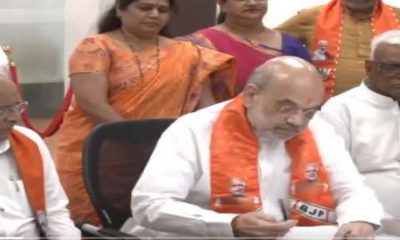
 2024 Lok Sabha Elections19 hours ago
2024 Lok Sabha Elections19 hours agoLok Sabha elections 2024: Amit Shah files nomination from Gandhinagar
-
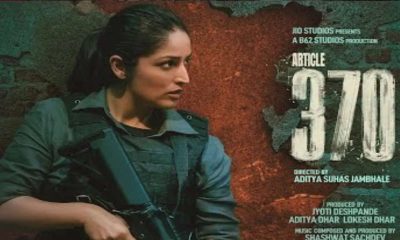
 Entertainment19 hours ago
Entertainment19 hours agoYami Gautam starrer Article 370 releases on Netflix today
-
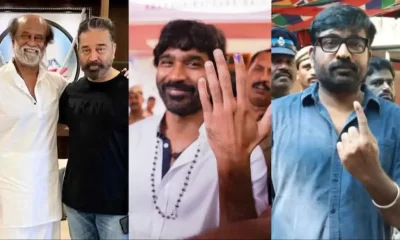
 2024 Lok Sabha Elections21 hours ago
2024 Lok Sabha Elections21 hours agoKamal Haasan, Rajinikanth, Vijay Sethupathi, Dhanush vote in Chennai
-
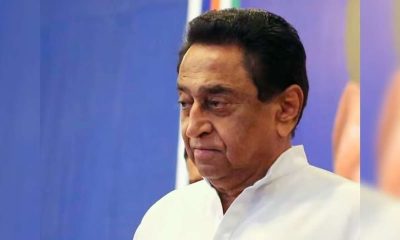
 2024 Lok Sabha Elections15 hours ago
2024 Lok Sabha Elections15 hours agoDeserted by key supporters, the Kamal Nath story looks set to wind to an end in Chhindwara
-
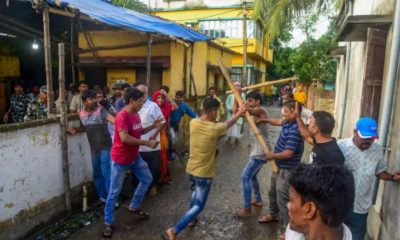
 2024 Lok Sabha Elections21 hours ago
2024 Lok Sabha Elections21 hours agoLok Sabha elections 2024: TMC, BJP workers clash in West Bengal’s Cooh Behar ahead of voting
-

 Entertainment16 hours ago
Entertainment16 hours agoAditya Roy Kapur, Sara Ali Khan’s Metro In Dino to release this November

